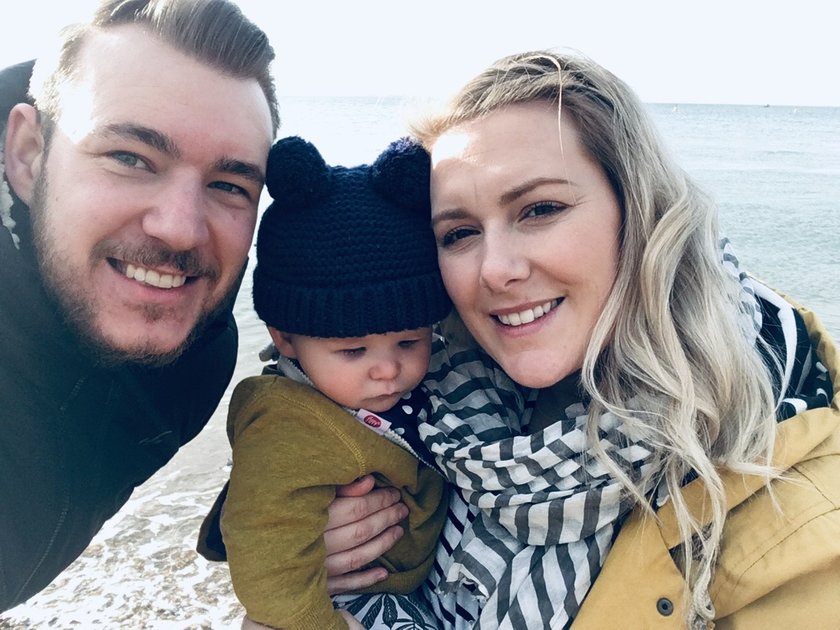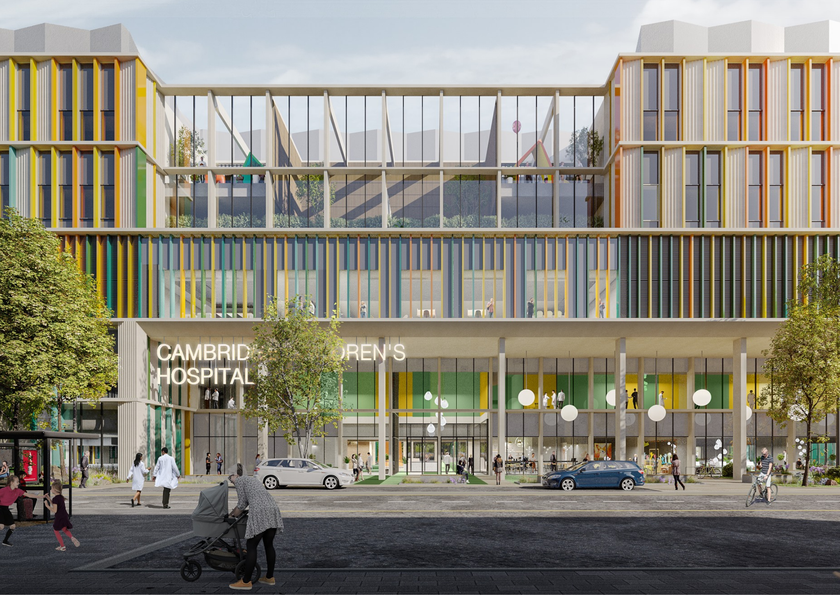Cambridge Children’s Hospital will provide a ‘whole family’ approach to care, ensuring the child’s support network is also looked after. But University of Cambridge research shows that mothers and fathers seek emotional help in different ways.

Advances in genetic testing have enabled families of critically ill children to receive early diagnoses that can open up new options for care and treatments. But, according to research by the University of Cambridge, the medical complexity of these, often lifelong and rare, conditions can lead to parental anxiety and distress, as well as uncertainty and upheaval in the family.
The Peregrin study (opens in a new tab) - Parental Experiences of Rapid Early Genomic Results in Infancy – followed up a cohort of mothers and fathers to explore how parents cope and experience support after their child undergoes rapid genomic testing due to a serious early-onset medical condition. The study, which is informing Cambridge Children’s Hospital’s ‘Whole Family’ approach, used questionnaires and interviews to understand parents’ emotional wellbeing and the impact on family life, 1 to 5 years after receiving the genetic result.
While over a third of parents of children with a genetic diagnosis reported insufficient support, mothers’ and fathers’ individual support needs, experiences, and perceptions of support differed.
Lead researcher Dr Helen Dolling explained that even the simplest thing, such as the question – how are you? – was different for mothers and fathers.
Some fathers said that often when they go to clinic appointments with the mother and child, the clinician asks how the child is and then they'd ask the mother, how are you? But not ask the father how he is.
Dr Helen Dolling, lead researcher, Peregrin Study

Reuben was four when he was diagnosed with an ultra-rare genetic condition thought to affect only a handful of people in the world. His dad, Nathan, remembers people directing questions to Danielle, Reuben’s mum, particularly in the early days. He took time off work, ensuring he could attend hospital appointments and be involved in every conversation with every specialist. This made a big difference and he felt more included. More on Reuben's story.
I think dads sometimes get seen as the 'helper' rather than the parent who's equally emotionally invested, but we feel it just as deeply.
Nathan, Reuben's dad

Cambridge Children’s Hospital will support the psychological wellbeing of everyone connected closely to the child. The Peregrin research study findings have contributed to the development of the new hospital’s family-informed care.
Children don’t live in isolation. The resilience of a child going through investigations or treatment is largely dependent on the support and scaffolding they receive on a daily basis from their family and carers. Because of this, it is important to attend to and support the mental health and wellbeing of parents, carers and siblings, who can themselves become overwhelmed due to frequent hospital admissions or appointments, and daily medical treatment regimes.
Dr Sara O’Curry, Consultant Clinical Psychologist and Head of Paediatric Psychological Services
Support groups were described by parents as a “double-edged sword,” providing valuable resources but also heightening anxiety about the child’s future.
Dr Dolling said the terminology around support groups could be “off putting” to some parents, and something that not all fathers accepted easily, particularly if they came from “a background of strength, independence and self-reliance, or if they see themselves as 'unsociable'.”
She said framing a support group as a ‘network’ or ‘parent group’ for families of children with healthcare needs, allowed fathers “to step into that additional support from a point of strength, accepting that offer as a rite of passage and normative for that situation.”
For both mothers and fathers, the research showed that they found it helpful to reach out to their partners and family members. However, mothers valued healthcare professionals, as well as friends or other parents for self-esteem, emotional, informational and practical support. Many taking part in the study said they lacked time or energy for socialising and had lost friendships due to their different experiences of parenting. New close friendships were forged with other mothers whose children had a similar condition.
Fathers sought support from healthcare professionals less frequently but looked to friends and their workplace as an opportunity for venting, distraction and to develop a sense of competence. But the research also reveals ongoing unmet support needs.
Fathers talked about themselves as needing to be the strong person in the family unit and the one that everyone should be able to rely on. There’s a sense of being torn between wanting to be with one’s partner and child whilst also feeling the responsibility to be the bread winner for the family and to provide a roof over their heads.
Dr Helen Dolling
Some fathers talked about their own physical and mental wellbeing and worried that “if something happened to them, who would look after the family?”, said Dr Dolling.
Mothers reported increased levels of anxiety, worry and emotional difficulties compared to the general population and to fathers. Fathers, on the other hand, spoke of higher levels of stress rather than elevated mental health symptoms, and often questioned their entitlement for professional support, prioritising the needs of their partner.
Genomic medicine now contributes to healthcare experiences for many more families. So it is really important that we listen to parents, learn from their experiences, and improve how information and support are provided. Whilst the technology behind genetic testing is amazing, it will become even more useful once we can strengthen long-term care for families after diagnosis.
Dr Kate Baker, Assistant Professor and Honorary Consultant in Genomic Medicine
The Peregrin study has recommended several ways healthcare professionals in current and future services can improve the support of parental wellbeing by:
- Recognising the importance of psychosocial support as the core component of initial diagnostic and long-term care for families who are managing the challenges of complex long term and genetic conditions.
- Recognising the unique experiences of each parent or carer, and siblings.
- Offering flexible, timely support, tailored to the family’s needs.
- Offering alternatives to support groups, which can be helpful to many but not suitable for everyone.
- Recognising that fathers’ needs are often overlooked and may require different approaches to engagement.
- Integrating psychosocial and family assessments into hospital care, to benefit those families most in need of and least able to access support.
- Training and supporting staff working closely with children, young people and families, to provide skilled, psychologically and family-informed support as part of routine care.
As well as providing psychological support for patients and their loved ones, Cambridge Children’s Hospital will also offer practical solutions that support a family’s wellbeing. Single en-suite rooms with a parent bed will allow parents and carers to have proper rest when they need it. There will be access to outdoor space on every ward, so fresh air and nature will be just a few steps away. Work is ongoing to consider how food can be more readily available, and more cost effective, so that parents, carers and siblings are well nourished. There will be breakaway spaces for parents and carers to work quietly or take some time out, when they feel able.
For Cambridge Children’s Hospital to be a place that sees and supports both parents, in their own ways, would be really special.
Nathan, Reuben's dad
- Fathers’ and Mothers’ Support Needs and Support Experiences after Rapid Genome Sequencing: Helen Dolling, Sophie Rowitch, Malachy Bromham, Stephanie Archer, Sara O’Curry, David H. Rowitch, F. Lucy Raymond, Claire Hughes, Kate Baker
